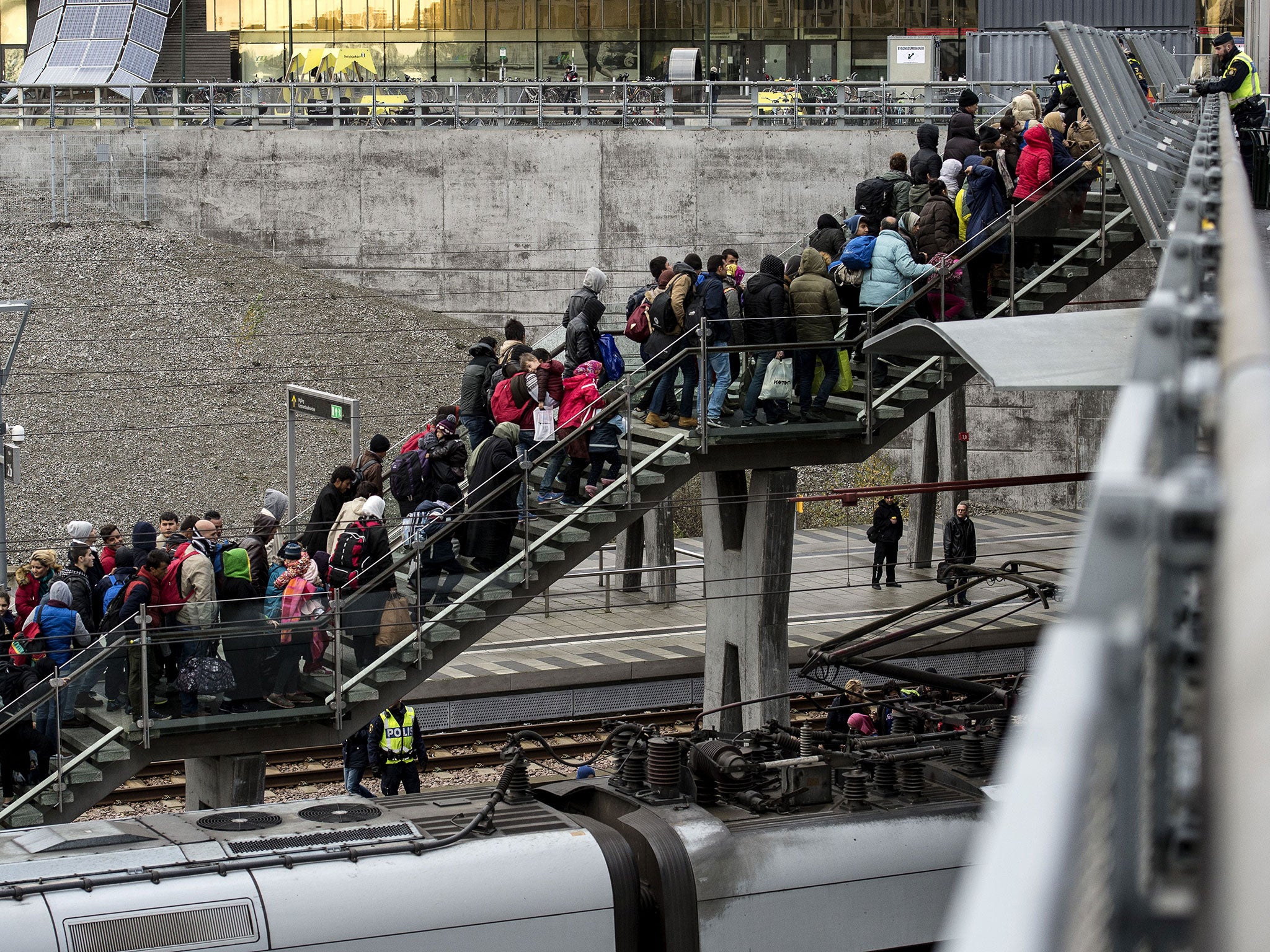Your support helps us to tell the story
From reproductive rights to climate change to Big Tech, The Independent is on the ground when the story is developing. Whether it's investigating the financials of Elon Musk's pro-Trump PAC or producing our latest documentary, 'The A Word', which shines a light on the American women fighting for reproductive rights, we know how important it is to parse out the facts from the messaging.
At such a critical moment in US history, we need reporters on the ground. Your donation allows us to keep sending journalists to speak to both sides of the story.
The Independent is trusted by Americans across the entire political spectrum. And unlike many other quality news outlets, we choose not to lock Americans out of our reporting and analysis with paywalls. We believe quality journalism should be available to everyone, paid for by those who can afford it.
Your support makes all the difference.Increasing the amount of aid given to Syrian refugee camps will reduce the number of refugees from the region travelling to Europe, David Cameron has said.
The Prime Minister is hosting an aid summit in London today with leaders and diplomats from 70 countries to help raise billion in aid for the war-torn country.
Britain is set to double its own contribution of aid to £2.3 billion, ministers say. Mr Cameron said the aid would be well-spent and have an impact on Europe’s refugee crisis.
“Using fundraising to build stability, create jobs and provide education can have a transformational effect in the region — and create a future model for humanitarian relief,” he said.
“We can provide the sense of hope needed to stop people thinking they have no option but to risk their lives on a dangerous journey to Europe.”
Around 4.6 million Syrians have been displaced from their homes and are living in neighboring countries but aid from the developed world has been far from free-flowing.
A summit held last year in Kuwait raised only half of its intended target, leading to cuts to food aid for refugees in neighbouring countries.
UN Secretary-General Ban Ki-moon also warned on Wednesday that fewer than five per cent of Syrians living in some conflict areas subject to sieges had been given food aid.

International Development Secretary Justine Greening told BBC News that failing to provide the aid had knock-on consequences for the West.
“If we look at what all of this means for us in Britain and, of course, more broadly in Europe, we’ve seen over the past summer the consequences of not providing the kind of support these people desperately need in their own home region,” she said.
“So to those people who say ‘hang on, what’s our response to the refugees flowing to Europe?’, well, our response has to be, actually, to meet their first choice which is to provide better support, more opportunity, more hope for them and their children in the region that’s fundamentally their home.”
She also confirmed the extra Syrian aid spend would count towards the UK’s commitment to spend 0.7 per cent of its GDP on aid – meaning the money had already been earmarked.
The vast majority of refugees from Syria are in countries adjacent to the conflict zone but overcrowding means many are making the journey to Europe.
The UK has refused to take Syrian refugees who arrive in Europe under their own steam, however.
Despite UK aid for refugee camps near Syria, Mr Cameron has so far declined to visit the one on Britain’s doorstep in Calais. No refugees are being admitted from that area.
Labour leader Jeremy Corbyn has however called for the Home Office to be “reasonable” about the situation and consider admitting people with connections to the UK.
The small British programme to take 4,000 refugees a year has instead drawn its targets directly from camps adjacent to the conflict zone.
Ministers have previously voiced fears that assisting refugees who make the journey to Europe would encourage more to travel.
Other European countries have been significantly more generous in accepting people who have arrived on their shores, however. Germany expects to take a million refugees this year.
In contrast to its record with accepting refugees, the UK is one of the biggest donors of aid to the Syrian conflict region.

Join our commenting forum
Join thought-provoking conversations, follow other Independent readers and see their replies
Comments